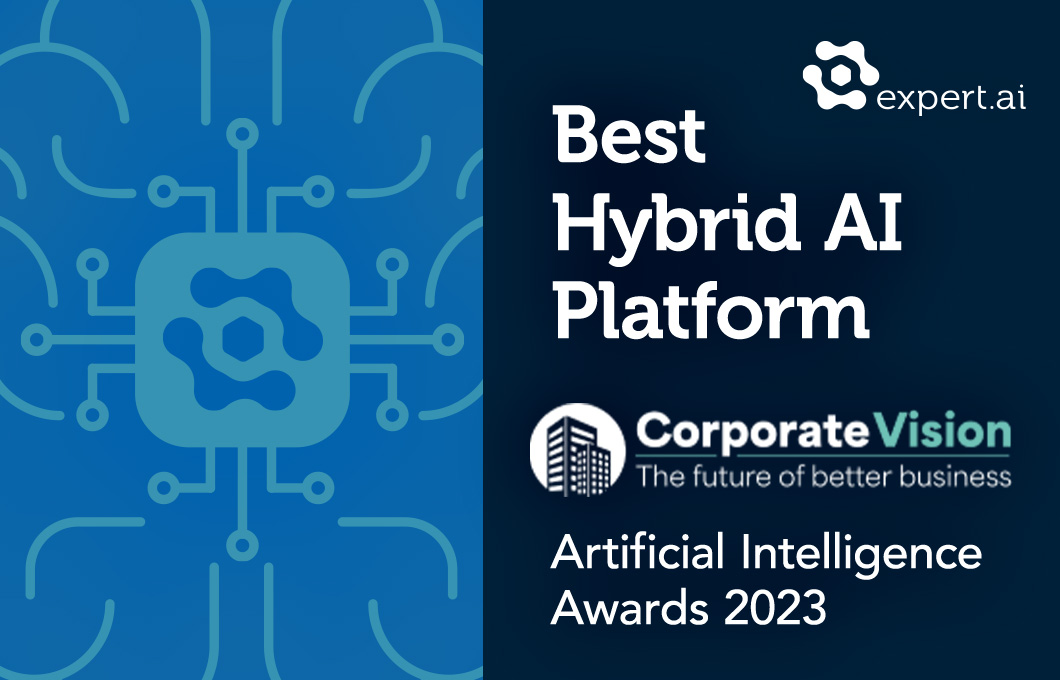Artificial intelligence (AI) in business is no longer just a glimpse into the future; it’s a present-day, game-changing advantage to meet your company’s needs. The shift towards digitalization has been reshaping how businesses operate, particularly in document processing. With the sheer volume of documents involved in global trade, from invoices and bills of lading to customs declarations and certificates of origin, efficiency and accuracy are paramount.
AI-driven innovation has become integral to modern business strategies, revolutionizing how organizations gain insights, analyze data, optimize operations and make informed decisions.
According to a recent report by PwC, business intelligence AI is projected to contribute a whopping $15.7 trillion to the global economy by 2030, of which $6.6 trillion is likely to come from increased productivity. This data underscores the profound impact of AI in business.
Kurt Knapton, CEO of Deep Cognition, warns that businesses that fail to embrace and capitalize on artificial intelligence trends risk falling behind in innovation and efficiency.
“The pace of technological innovation is accelerating, and businesses that fail to adapt risk falling behind,” Knapton said.
“The future of business belongs to those willing to embrace change and harness the power of AI. With AI-driven innovation, we’re not just preparing for tomorrow; we’re shaping it.”
Is your company equipped to adopt AI in business and thrive in this competitive landscape?
By harnessing AI in industry operations, different market players can tackle complex challenges, maximize growth opportunities and achieve significant advancements.
Understanding the Role of AI in Business
Developing a robust business intelligence AI strategy is about understanding what’s possible and identifying your top priorities where AI can deliver the most value.
Today, machine learning in business is used to:
- Automate repetitive tasks
- Improve demand forecasting, inventory management and logistics
- Strengthen cybersecurity measures
- Improve visibility and coordination across the supply chain
- Minimize the risk of human error
In many ways, the scale of its impact far exceeded expectations. Unlike traditional AI systems, ‘trainingless’ AI doesn’t rely on continuous human intervention to adapt and improve. Its capacity to learn and evolve autonomously makes it highly adaptable to evolving document formats and regulations.
Moreover, the scalability of ‘trainingless’ AI means that as your business grows, your document automation efforts can grow without sacrificing efficiency. Automating data entry and minimizing errors enables organizations to focus their resources on strategic initiatives, ultimately driving higher return on investment (ROI).
Companies that have successfully integrated machine learning in business operations reported significant benefits, including:
- Enhanced efficiency, resulting in faster turnaround times and reduced operational costs.
- More informed decision-making, helping businesses respond swiftly to market changes and customer needs.
- The ability to innovate and scale operations quickly.
- Enhanced risk management that helps mitigate threats proactively and safeguard operations and assets.
- Gaining a competitive edge.
Consider the case of Super Cargo, an esteemed logistics company that provides integrated solutions for transporting vehicles and freight in the wider Mediterranean area.
CASE STUDY HIGHLIGHT:
Before adopting AI technology trends, Super Cargo faced a significant challenge in integrating electronically with its suppliers due to it’s fragmented information systems. The company received over 4,000 purchase invoices monthly, with only 40% of data entered automatically through interfaces and document management solutions.
Through AI-driven business automation, Super Cargo eliminated manual data entry and gained control over the total amount of fares issued by its partners/suppliers.
The successful integration of machine learning in business operations helped Super Cargo maximize process efficiency with 50K+ fare/travel information validated from June 2021 to February 2022, saving 30 person months.
Generative AI for Document Automation
As business operations expand, so does the volume and variety of documents that need processing. Legacy systems often buckle under the strain, forcing companies to make trade-offs between growth and efficiency. Sticking with traditional approaches hinders a company’s ability to gain a competitive advantage.
To future-proof your customs brokerage business, consider embracing generative AI for document automation. This technology can revolutionize your workflow, providing significant advantages in three key areas:
- Time & Cost Savings
Generative AI can rapidly process and extract information from documents, reducing the time and resources required for manual data entry. This efficiency translates into significant cost savings for your business. Your team can redirect their efforts towards more strategic tasks, enhancing overall productivity. - Scalability
Generative AI can seamlessly scale with your business, handling a high volume of documents without compromising accuracy or speed. This scalability ensures you can meet the demands of a growing client base without the need for a massive workforce expansion. - Competitive Edge
Clients increasingly seek partners who leverage cutting-edge technology to provide faster, more accurate and cost-effective services. Adopting advanced AI solutions allows your customs brokerage business to stay ahead of the curve and positions you as an industry leader.
The edge gained from automated, error-free data entry can’t be underestimated. Businesses embracing modern document automation solutions are poised to outpace those clinging to manual and outdated methods in a landscape where every efficiency counts.
How To Leverage AI To Future-Proof Your Business
Deloitte’s “State of AI in the Enterprise” report revealed that 94% of business leaders surveyed agree that AI business transformation is critical over the next five years. However, while some large corporations are starting to see the results of their digital transformation efforts, most struggle to scale for these reasons:
- 30% lack funding for AI technology trends and solutions.
- 29% lack the technical skills to adopt AI transformation.
- 29% struggle to choose the right AI-powered business automation technologies.
To overcome these challenges, organizations must take a strategic approach to business intelligence AI implementation:
-
Assess Current Capabilities
Begin your digital transformation by evaluating your existing technological infrastructure, workforce skills and organizational readiness for AI integration. Conducting an AI transformation readiness assessment will help you identify gaps or limitations in your existing infrastructure and ensure a smooth integration of AI in industry operations.
-
Identify AI-Related Opportunities and Threats
Achieving sustainable growth in today’s competitive landscape requires a proactive stance toward identifying and capitalizing on AI-driven opportunities while simultaneously safeguarding against potential threats. Analyze artificial intelligence trends and monitor how competitors are leveraging AI-driven innovation to facilitate informed decision-making and proactive adaptation strategies.
-
Schedule Demos With Different AI Vendors
This is crucial to getting a better hands-on understanding of the technology and meeting the team that will ultimately guide you in integrating AI into your business transformation. If your team lacks adequate AI training and expertise, it’s essential to partner with AI vendors who can walk you through the process and educate you along the way.
Check to see which vendors will offer a pilot period during which you can test AI functionality for a small part of your business before jumping in head first. This will allow companies that lack extensive funding to implement AI in industry operations at a fraction of the cost and see their ROI before expanding AI to other areas of their company.
-
Select AI Technology Strategically
Once you’ve met with different AI vendors and analyzed artificial intelligence trends, leverage this data to choose AI technologies that align with your strategic objectives and growth priorities. To maximize your ROI, prioritize AI transformation solutions that offer scalability, interoperability and compatibility with existing systems.
-
Promote Data Quality and Governance
Establish clear metrics for data quality, including accuracy, completeness, consistency and timeliness. These metrics serve as benchmarks for evaluating data sets and identifying areas for improvement. Regularly assessing your data quality against these standards will help maintain the integrity of your AI systems and enhance the overall performance of your business automation efforts.
-
Stay Agile and Adaptive
Continuously monitor AI technology trends, emerging technologies and best practices in data management and AI implementation. More importantly, be prepared to adjust your strategies and infrastructure as new challenges and opportunities arise.
The Cost of Hesitation
Today, many custom brokers still rely on manual methods for their document processing. With human resources allocated to hours of inputting data, manual data entry is both time-consuming and expensive. This energy could be better spent focusing on more value-added tasks.
Additionally, no matter how skilled the workforce is, human error is an inherent risk that businesses must mitigate. Although the error could be as small as one wrong character, its consequences can snowball into legal penalties, customs delays and disruptions in the supply chain.
Embracing AI-driven innovation is critical to any business’s digital transformation journey. Since 2019, the number of businesses that have adopted AI transformation has grown by 270%. Companies that wait to adopt AI may never catch up and struggle with:
- Missed opportunities for efficiency and innovation
- Stagnation in a competitive market
- Ineffective decision-making
- Cybersecurity vulnerabilities
- Scalability challenges talent attraction and retention
- Regulatory compliance
- Long-term viability
It’s evident the future of AI is here, and it’s transforming industries across the globe.
“As we look ahead to 2025 and beyond, it’s clear that AI will be the driving force behind business transformation,” Knapton said.
“By proactively adopting AI technologies, you can stay competitive with leaders in your industry and future-proof your organization against the disruptions to come.”
Now’s the best time to invest in AI business transformation. This involves both adopting AI technologies and fostering a culture of continuous learning and adaptation. By doing so, businesses can remain agile and responsive to market changes.
Embrace the Future of AI With PaperEntry AI
Deep Cognition’s PaperEntry AI offers a unique approach that differentiates it from the competition.
At its core is Generative AI, a game-changing technology that enables PaperEntry AI to be “trainingless.” Unlike conventional AI systems requiring time-consuming training and constant supervision, PaperEntry AI learns from its mistakes and evolves into a smarter, more efficient tool over time. This feature alone places it at the forefront of IDP technology.
With PaperEntry AI, you’re not just keeping pace with technological advancements but embracing them without the cumbersome training processes that other platforms demand. This adaptability ensures your customs brokerage business is well-prepared for the ever-changing tech landscape.
Begin your digital transformation with Deep Cognition’s PaperEntry AI. Contact us today to schedule a demo.



